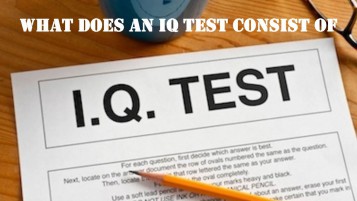What's the Average IQ? Although IQ test results can differ, a common benchmark for the average IQ score across various tests is 100, with approximately 68% of scores falling within the range of 85 to 115.
With a median IQ score of 100 and a deviation of 15, approximately 68% of people fall within the "normal" or "average" range of intelligence when taking the IQ tests.
The average IQ score, typically set at 100, may differ in various regions, nations, and career fields, meaning that certain professions may attract individuals with higher or lower average intelligence scores compared to others. These regional and occupational differences in IQ scores highlight the diversity and complexity of human intelligence.
IQ scores can vary by country. These scores can be influenced by various factors, including cultural, educational, and socioeconomic differences. But it's important to note that measuring the average IQ of entire nations can be challenging and may not provide a comprehensive view of the intelligence levels of a population.
In a study conducted in 2019 by researchers Richard Lynn and David Becker at the Ulster Institute, it was found that the Japanese have the highest average IQ scores globally, with individuals from Taiwan and Singapore not far behind. On the contrary, Nepal is considered a modest IQ country, with an average score of 42.99.
Here's a general list of the top 10 countries with relatively higher IQ scores and the top 10 countries with relatively lower IQ scores, based on available data, though these rankings may change over time:
|
Rank |
Country |
Average IQ |
|
1 |
Japan |
106.48 |
|
2 |
Taiwan |
106.47 |
|
3 |
Singapore |
105.89 |
|
4 |
Hong Kong |
105.37 |
|
5 |
China |
104.10 |
|
6 |
South Korea |
102.35 |
|
7 |
Belarus |
101.60 |
|
8 |
Finland |
101.20 |
|
9 |
Liechtenstein |
101.07 |
|
10 |
Germany |
100.74 |
|
Rank |
Country |
Average IQ |
|
1 |
Nepal |
42.99 |
|
2 |
Liberia |
45.07 |
|
3 |
Sierra Leone |
45.07 |
|
4 |
Guatemala |
47.72 |
|
5 |
Cape Verde |
52.50 |
|
6 |
Gambia |
52.68 |
|
7 |
Nicaragua |
52.69 |
|
8 |
Guinea |
53.48 |
|
9 |
Ivory Coast |
58.16 |
|
10 |
Ghana |
58.16 |
Based on the most recent data from 2022, the average IQ in the United States stands at 98. Over the course of history, there has been a consistent upward trajectory in the average IQ scores within the United States, with an approximate increase of 3 points per decade. This upward trend can be attributed to various reasons, including developments in education, healthcare, and nutrition. However, it's important to note that there are substantial variances in average IQ scores when comparing different states.
According to data sourced from the National Assessment of Educational Progress, Massachusetts boasts the highest average IQ score at 104.3, closely followed by New Hampshire with a score of 104.2. Conversely, Mississippi records the lowest average IQ score at 94.2.
|
Rank |
State |
Average IQ |
|
1 |
Massachusetts |
104.30 |
|
2 |
New Hampshire |
104.20 |
|
3 |
North Dakota |
103.80 |
|
4 |
Vermont |
103.80 |
|
5 |
Minnesota |
103.70 |
|
6 |
Maine |
103.40 |
|
7 |
Montana |
103.40 |
|
8 |
Iowa |
103.20 |
|
9 |
Connecticut |
102.10 |
|
10 |
Wisconsin |
102.90 |
|
Rank |
State |
Average IQ |
|
1 |
Mississippi |
94.20 |
|
2 |
Louisiana |
95.30 |
|
3 |
California |
95.50 |
|
4 |
Hawaii |
95.60 |
|
5 |
Alabama |
95.70 |
|
6 |
New Mexico |
95.70 |
|
7 |
Nevada |
96.50 |
|
8 |
Arizona |
97.40 |
|
9 |
Arkansas |
97.50 |
|
10 |
Tennessee |
97.70 |
Some careers may require specific cognitive skills or aptitudes, but these can vary widely within the same field. For example, professions in science and engineering fields often require strong problem-solving skills and analytical and critical thinking, while creative careers in the arts may emphasize imaginative thinking and artistic talent.
We managed to uncover a solitary study dating back to 1967 that utilized the WAIS (Wechsler Adult Intelligence Scale) to examine the average IQ scores of male scientists at the University of Cambridge.
The results of this study were as follows:
It's important to remember that IQ scores are just one measure of cognitive abilities and have their limitations. They should not be used as the sole basis for career decisions or as a judgment of a person's potential. People have diverse talents and strengths, and career success is influenced by a combination of skills, personality traits, interests, and individual circumstances.
In summary, the average IQ serves as an assessment of the typical performance on an IQ test by a specific group of individuals. IQ tests are formulated to gauge a variety of cognitive skills, yet they are not flawless indicators of intelligence. To comprehensively evaluate a person's abilities and potential, it is advisable to incorporate IQ test results with other measures.





